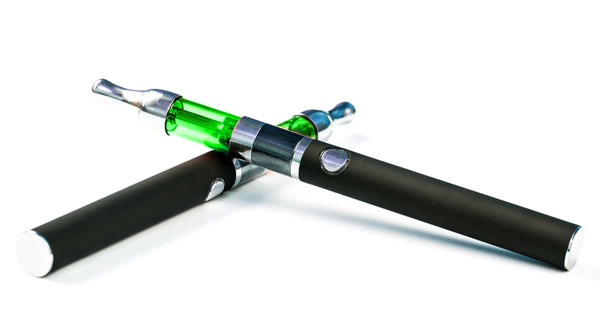E-cigarettes, Teenagers and Oral Health

 More teenagers have tried Electronic Cigarettes than adults, with statistics showing as many as 10% of high school students having tried the latest trend in smoking compared with only 2.7% of adults. E-cig use has exploded in the past few years, and many people claim to have stopped smoking traditional cigarettes because of them. While many users also believe e-cigarettes to be safer than regular cigarettes, no definitive studies have proven that they are a safe alternative. When looking at e-cigarettes and oral health, especially in relation to teenagers, it’s important to remember that an e-cigarette is still primarily a nicotine delivery device and there’s little debate as to the effects of nicotine on the body.
More teenagers have tried Electronic Cigarettes than adults, with statistics showing as many as 10% of high school students having tried the latest trend in smoking compared with only 2.7% of adults. E-cig use has exploded in the past few years, and many people claim to have stopped smoking traditional cigarettes because of them. While many users also believe e-cigarettes to be safer than regular cigarettes, no definitive studies have proven that they are a safe alternative. When looking at e-cigarettes and oral health, especially in relation to teenagers, it’s important to remember that an e-cigarette is still primarily a nicotine delivery device and there’s little debate as to the effects of nicotine on the body.
What is nicotine?
Nicotine is a stimulant that, when inhaled, is absorbed by the lungs into the blood stream and passed within seconds to the brain. As a drug, nicotine works by both stimulating the user through low doses and relaxing the user in higher concentrations. As evidenced by the large number of people addicted to tobacco products, nicotine is seen as one of the most addictive drugs available. Interestingly, nicotine has a history of use as an insecticide but isn’t commonly used today because of it’s danger to animals and people.
How does nicotine harm oral health?
Nicotine is a chemical compound known for it’s vasoconstrictor properties, which means that it works by narrowing blood vessels and reducing blood flow throughout the body. When blood flow is frequently reduced to the gums, there is a dramatic increase in the likelihood of periodontal (gum) disease. Less blood delivered to the gums means less oxygen and fewer nutrients. This can result in symptoms such as bleeding gums, redness, bad breath and even tooth loss.
Better than cigarettes?
The truth is, no one is completely sure about the long-term health effects of e-cigarettes which can make them a particular concern for adolescents. Many teenagers are smoking e-cigarettes because they feel they are safe or cool. Regardless of how it’s delivered, however, nicotine is still a highly addictive drug that should be avoided by everyone, especially growing teens. With few laws banning their use among young people, it’s important to educate your children about the potential hazards of this growing trend.
